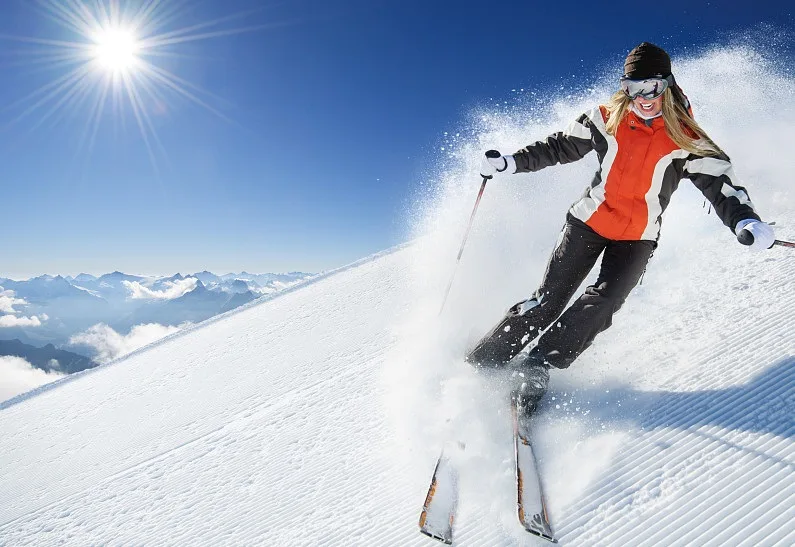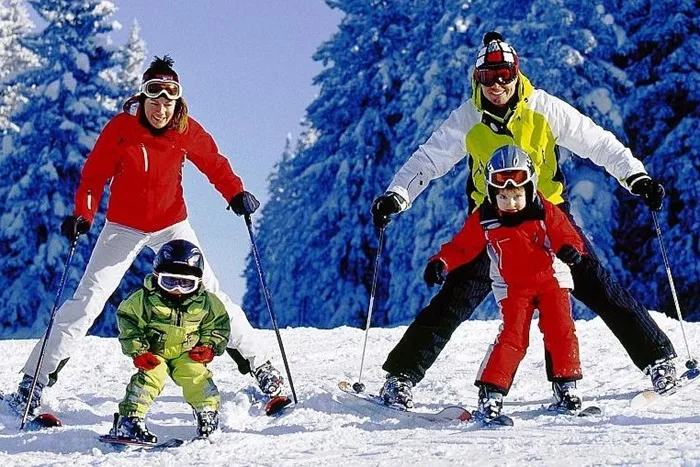Hit the Slopes: Mastering Skiing as Your Next Adventure
Skiing, a thrilling winter sport, offers a unique blend of adventure, fitness, and the unmatched beauty of snowy landscapes. This exhilarating activity is not just a sport but a lifestyle that attracts enthusiasts from all corners of the globe, seeking the thrill of gliding over fresh powder.
What kind of sport, and why it captivates so many?
Skiing is categorized into various disciplines, including alpine, freestyle, and cross-country, each offering different challenges and experiences. Alpine skiing, the most popular form, involves descending groomed slopes, while cross-country skiing emphasizes endurance as you traverse long distances on flatter terrain. Freestyle skiing, on the other hand, focuses on tricks and jumps, showcasing the skier’s technical skills and creativity.
The allure of skiing lies in its ability to merge physical exercise with the enjoyment of nature’s pristine settings. It’s a sport that demands both mental and physical agility, providing a cardiovascular workout while honing balance and coordination. The joy of skiing is also in its social aspect, where friends and families can gather to share the excitement of the slopes and the tranquility of winter landscapes.
How much of a problem is this sport in terms of equipment, finding a place to ride, and getting there
One of the challenges of skiing is the investment in equipment. Skiing requires a specific set of gear, including skis, boots, poles, and appropriate winter clothing. While high-quality equipment can be expensive, rental options are available at most resorts, offering a cost-effective solution for beginners or those who ski infrequently.
Finding the right place to ski is another consideration. Ski resorts are spread across the globe, with each offering unique experiences based on their geographic location. The accessibility of these resorts varies, with some situated near major cities and others nestled in remote areas, requiring careful planning and travel arrangements.
Transportation to ski resorts can be a hurdle, especially for those located in secluded regions. However, many resorts provide shuttle services from nearby airports or towns, and some areas are serviced by public transportation. The journey to the slopes is part of the adventure, offering stunning winter landscapes and the anticipation of the skiing experience.
What you need to know before playing this sport
Before hitting the slopes, understanding the basics of skiing is crucial. Familiarity with the equipment and its proper use is the first step. For beginners, taking lessons from a certified instructor can accelerate the learning process, ensuring a safe and enjoyable experience.
Knowledge of ski resort etiquette and the rules of the slope is essential for everyone’s safety. This includes understanding the right of way, how to safely board and exit lifts, and the importance of staying within marked boundaries.
Physical preparation cannot be overstated. Skiing is demanding on the body, and improving core strength, flexibility, and stamina can significantly enhance your skiing ability and reduce the risk of injury. Additionally, being aware of weather conditions and avalanche risks is critical for safety, especially when skiing in backcountry areas.
Choosing the right ski resort is another important consideration. Resorts offer varying levels of difficulty, and selecting one that matches your skill level can greatly impact your enjoyment and safety on the slopes.
Finally, understanding the costs associated with skiing, including lift tickets, equipment rental, and accommodation, is necessary to plan a successful ski trip. Many resorts offer package deals that can provide savings for lodging, lifts, and rentals.

Who should not do it
While skiing is accessible to many, it may not be suitable for individuals with certain medical conditions or those recovering from injuries, especially related to the knees or back. The physical demands of skiing require a good level of fitness and mobility.
Pregnant women and individuals with heart conditions should consult with a healthcare provider before considering skiing. The high altitude and strenuous activity can pose risks that need to be carefully evaluated.
Where else it can be applied
The skills and physical fitness gained from skiing can benefit other sports and activities. The balance and coordination developed on the slopes are transferrable to sports like cycling and skateboarding.
Moreover, the mental discipline and focus required for skiing can enhance performance in various aspects of life, promoting a mindset that values preparation, awareness, and the ability to navigate challenges effectively. Skiing fosters a love for the outdoors and an appreciation for nature’s beauty, encouraging an active and healthy lifestyle year-round.





